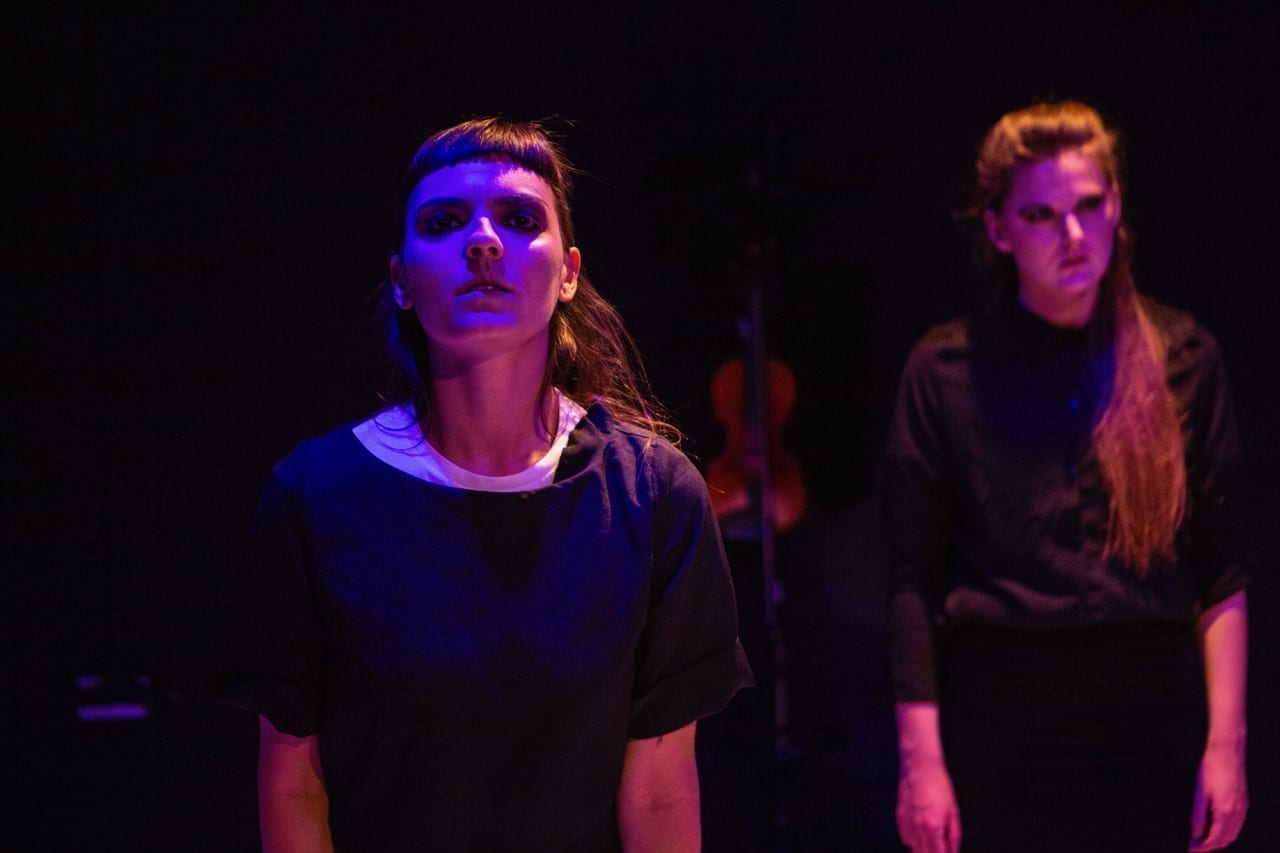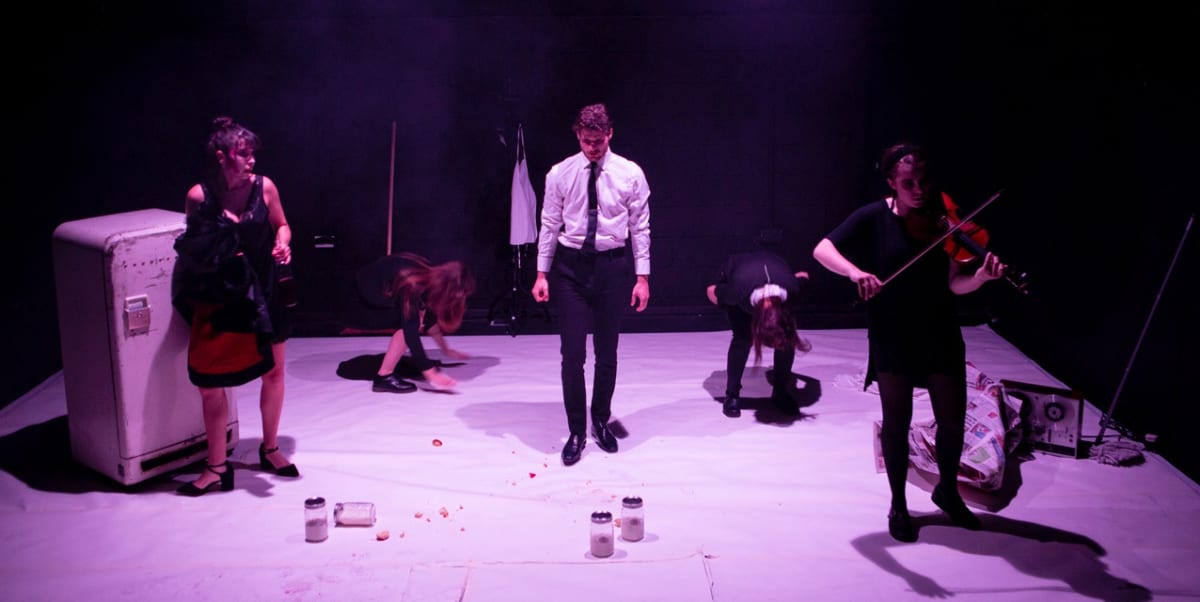Few writers have explored alienation as well as Franz Kafka. His nightmarish prose, that pits individual against authority, arguably changed the way we think about modern life. A new reading of his most celebrated fables is a bold undertaking, but luckily in this case, thoroughly rewarding.
Metamorphosis tells the tale of Gregor Samsa, whose transformation alienates him from modern society. Emily Louizou’s adaptation expands on this dark vision, focusing less on the horror of becoming an insect and more on the horror of family estrangement.
Part-drama and part-dance, Metamorphosis uses powerful visuals to create an unsettling and arresting experience. The choreography is tight yet fluid, with angular and frustrated movements to signify struggle and torment. Repeated actions, such as a broom sweeping into a wall, are particularly effective here and help add to Samsa’s surreal and hostile reality.
 The performers are a skilled ensemble, at times funny, others scary, and displaying an impressive array of skills in both dramatic and physical theatre. Jodie Sully delights as a formidable mother prone to hysterics, Katy Ellis endears as Gregor’s sister and impresses on the violin, while George Turner is terrifying as Gregor’s brittle, crude, and proud father.
The performers are a skilled ensemble, at times funny, others scary, and displaying an impressive array of skills in both dramatic and physical theatre. Jodie Sully delights as a formidable mother prone to hysterics, Katy Ellis endears as Gregor’s sister and impresses on the violin, while George Turner is terrifying as Gregor’s brittle, crude, and proud father.
The joy of Kafka’s writing is its openness to interpretation. The original story has been seen as a critique of everything from modernity to capitalism to organised religion. I always thought it was about a man who just didn’t want to go to work.
Metamorphosis honours this spirit of interpretation with an ambiguous reading of the tale. Gregor’s family are disgusted by his transformation, which leads to his othering as an outsider. It is possible that Gregor’s predicament could relate to the alienation that trans or queer children may feel, but the show is subtle and avoids any easy categorisation.
The great strength of Louizou’s direction is in how she encourages the audience to identify with Gregor. Smart use of direct address and narration means that we relate to the events of the show through Gregor’s point-of-view, which makes his family’s harsh treatment all the more painful.
My only criticism is that some of the scenes drag a little, which can reduce the impact of the show’s more surreal moments. More could be made of the climax too, for while it is beautifully staged, it lacked in emotional weight for what is otherwise a very tragic ending.
Metamorphosis is still a fantastic show, presenting a fresh and original take on Kafka that will please both the knowledgeable and the curious.

